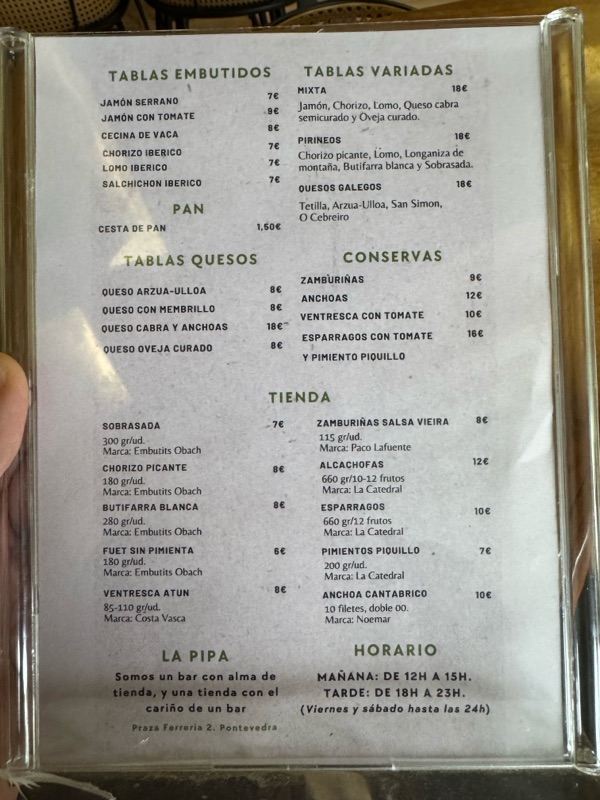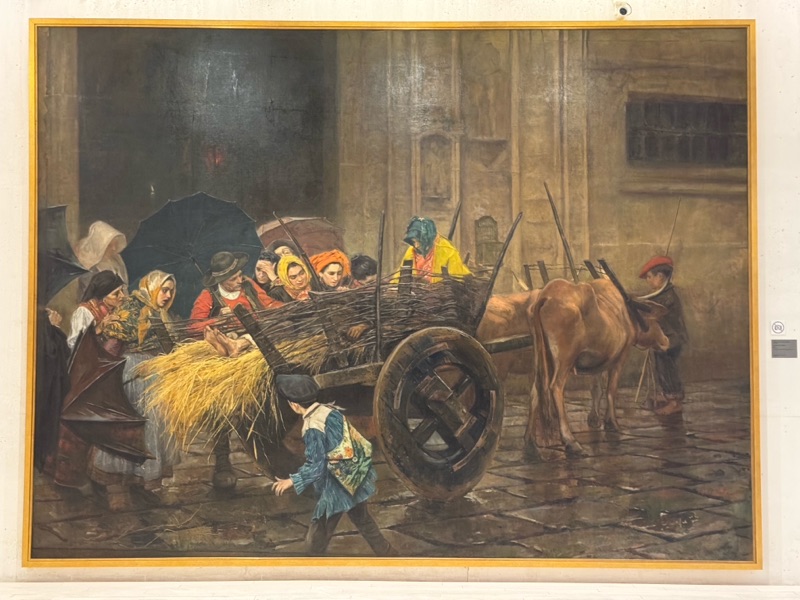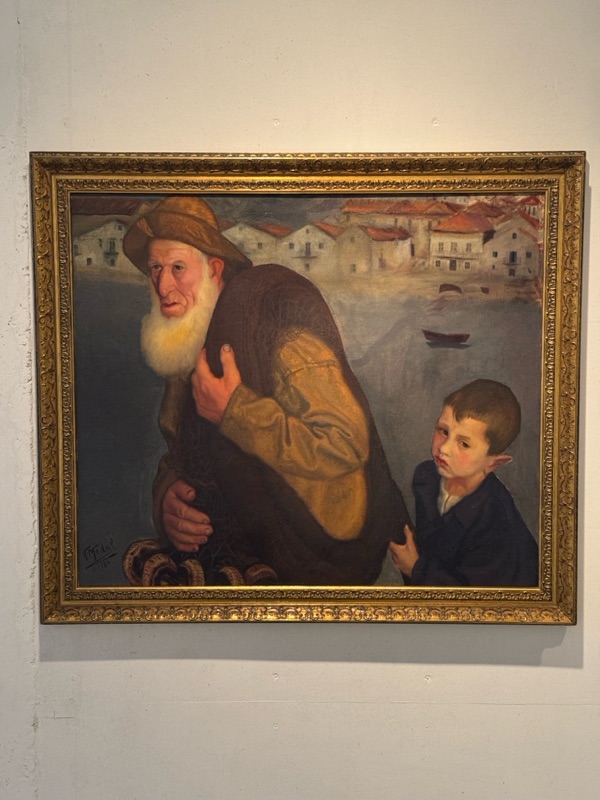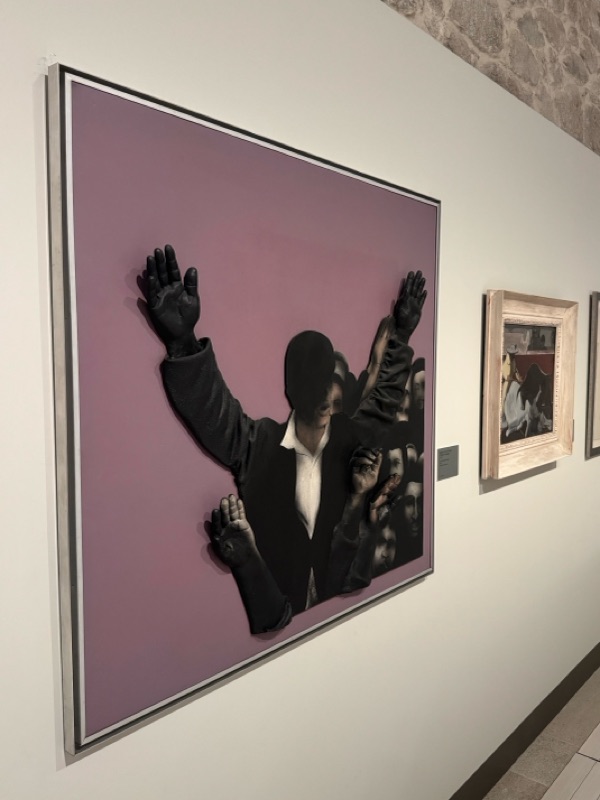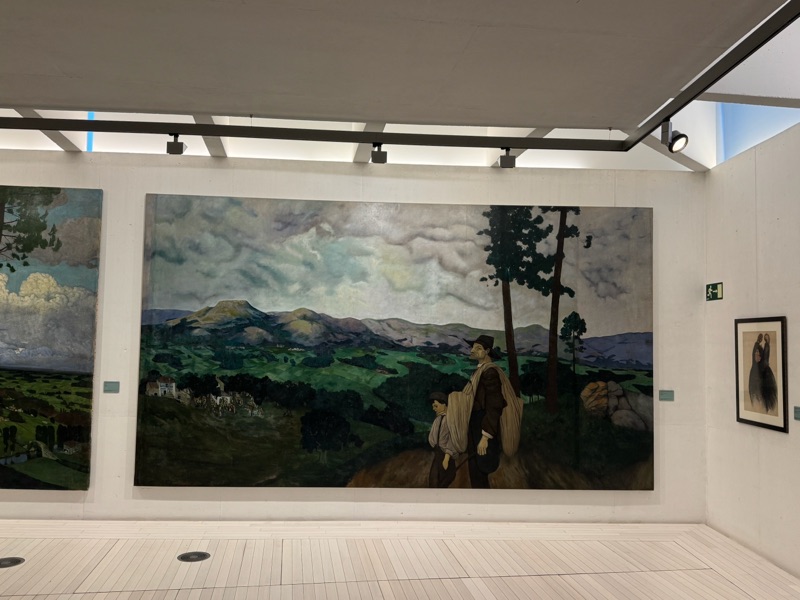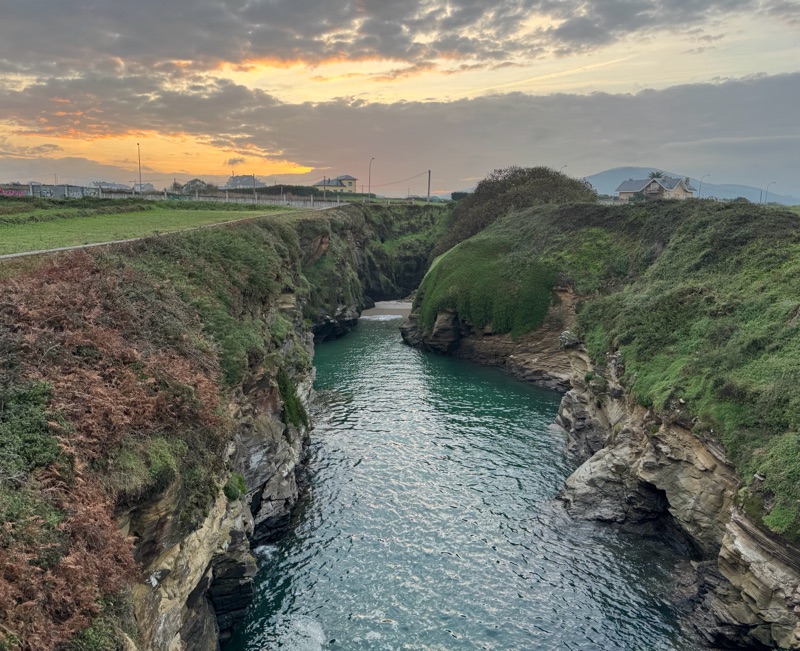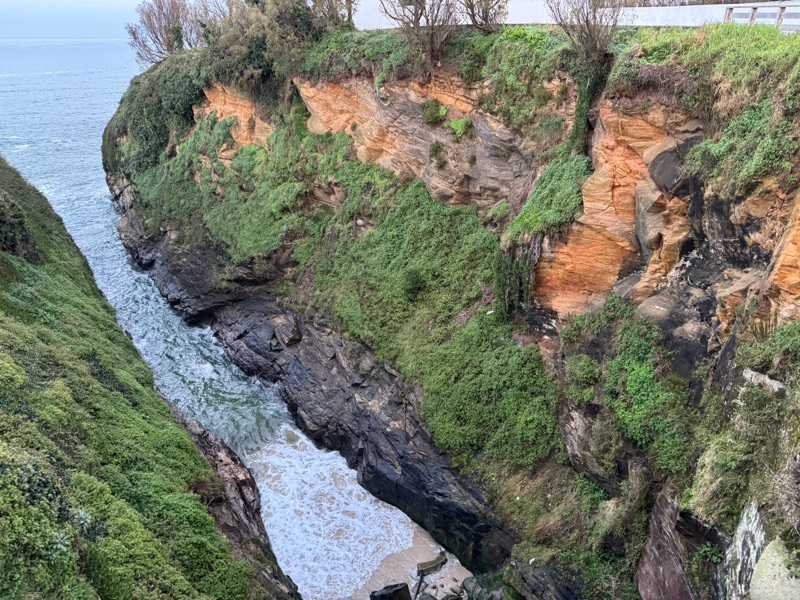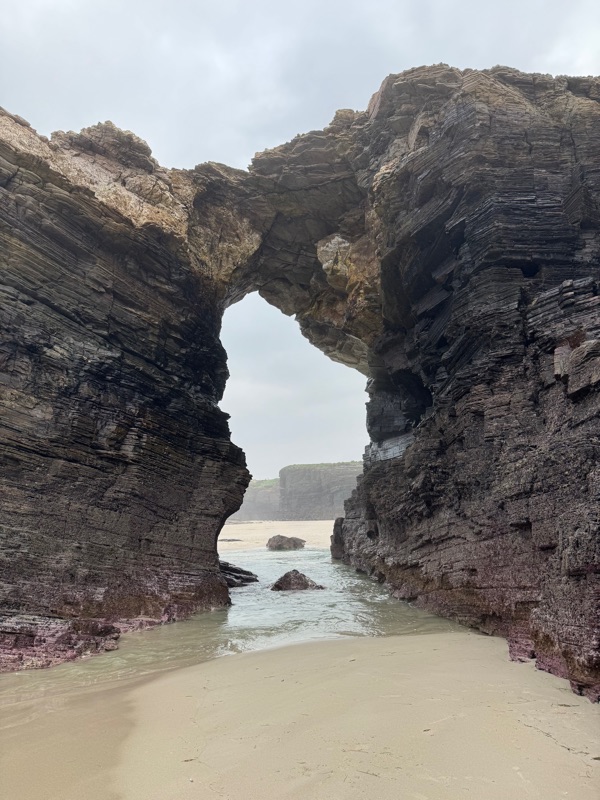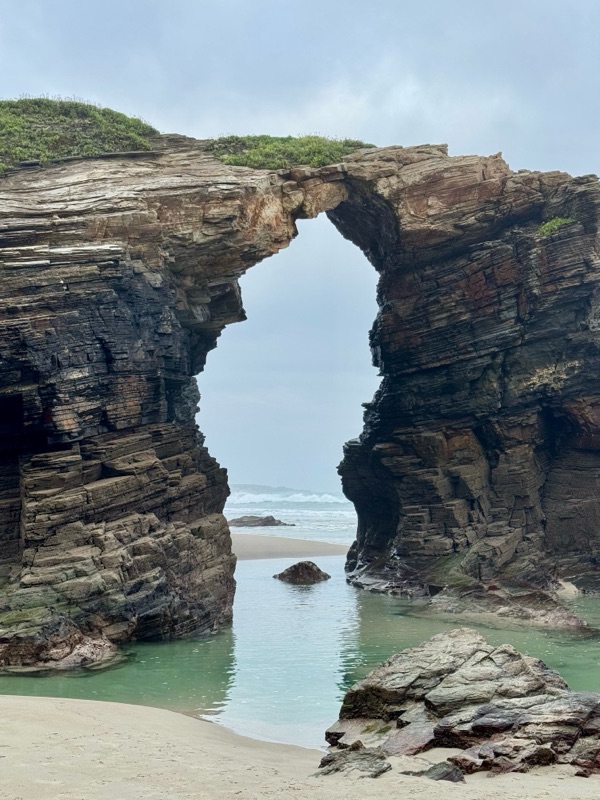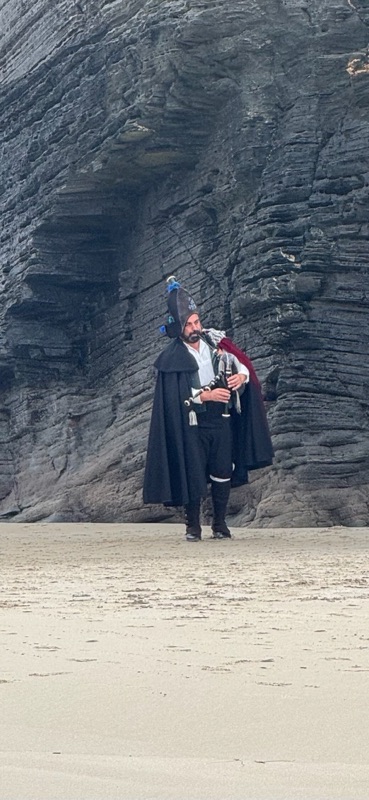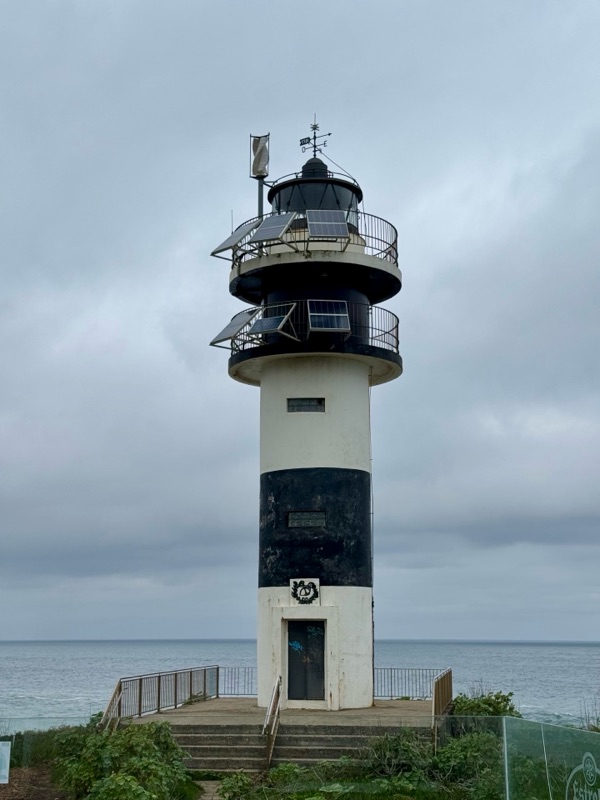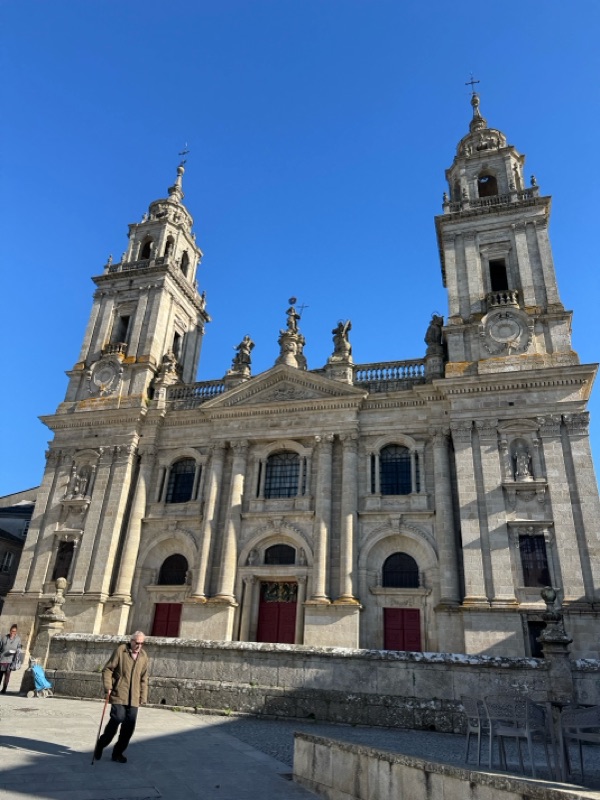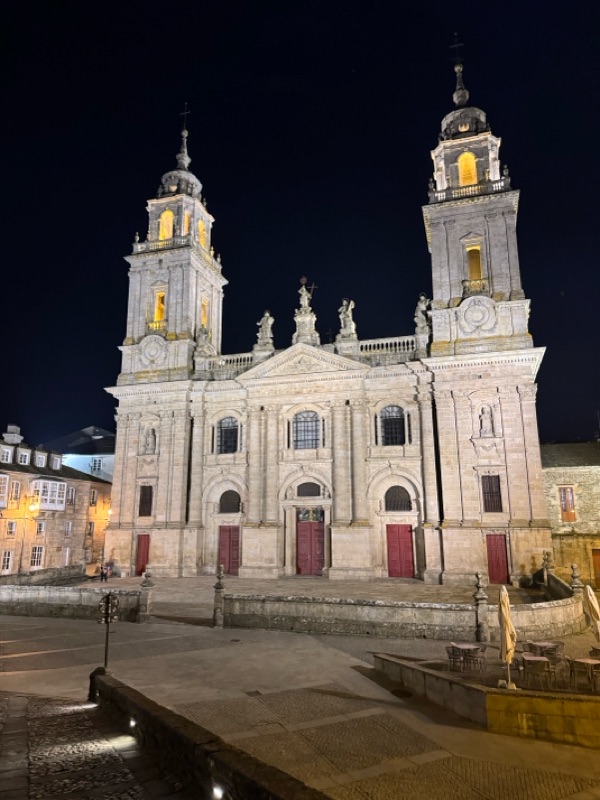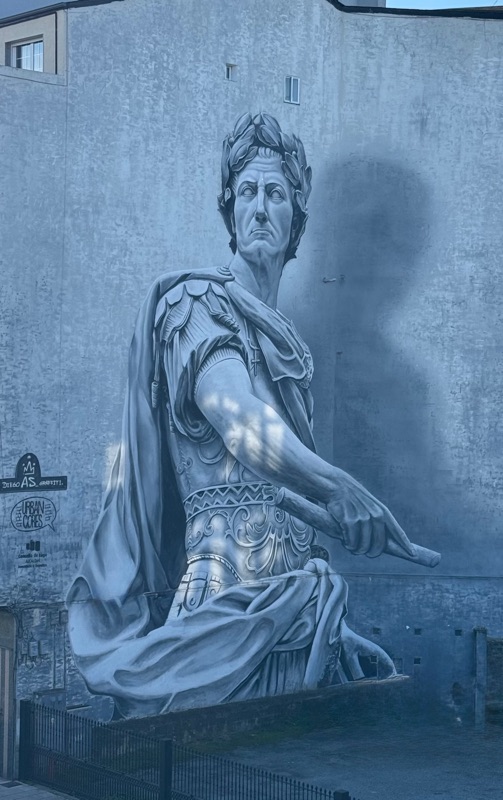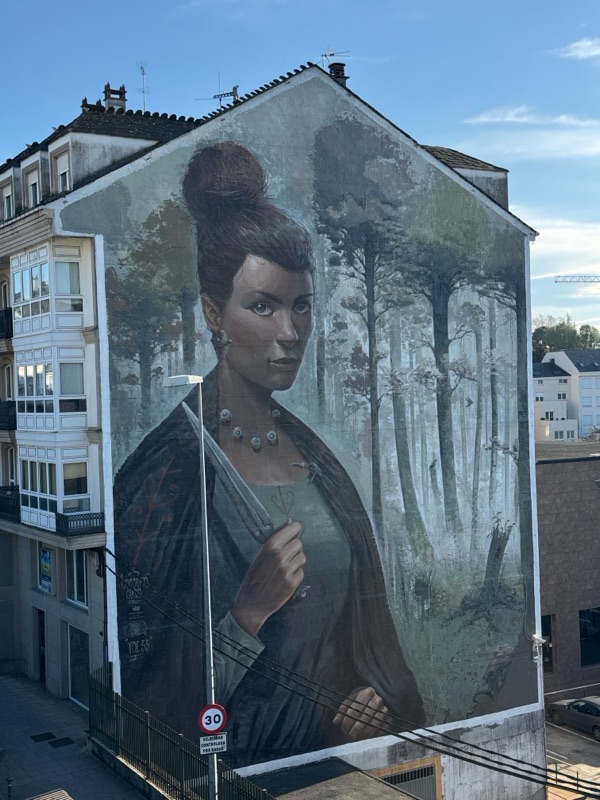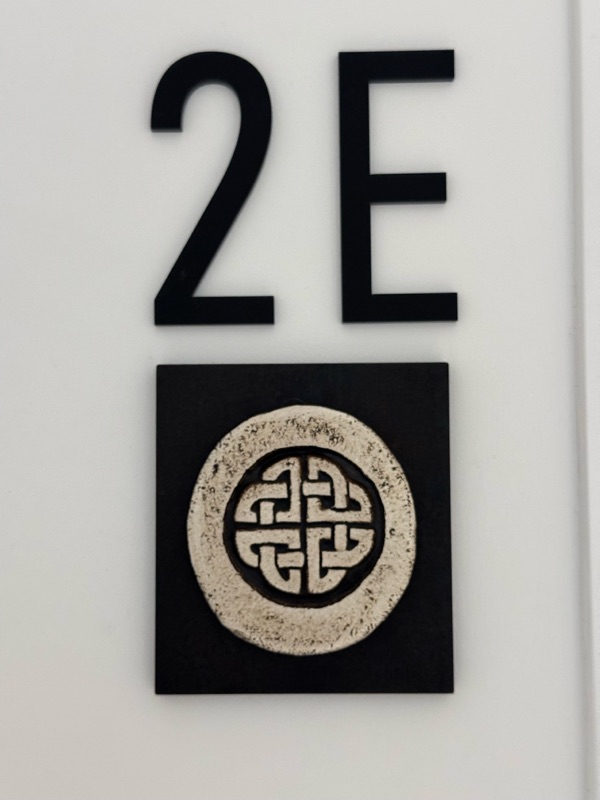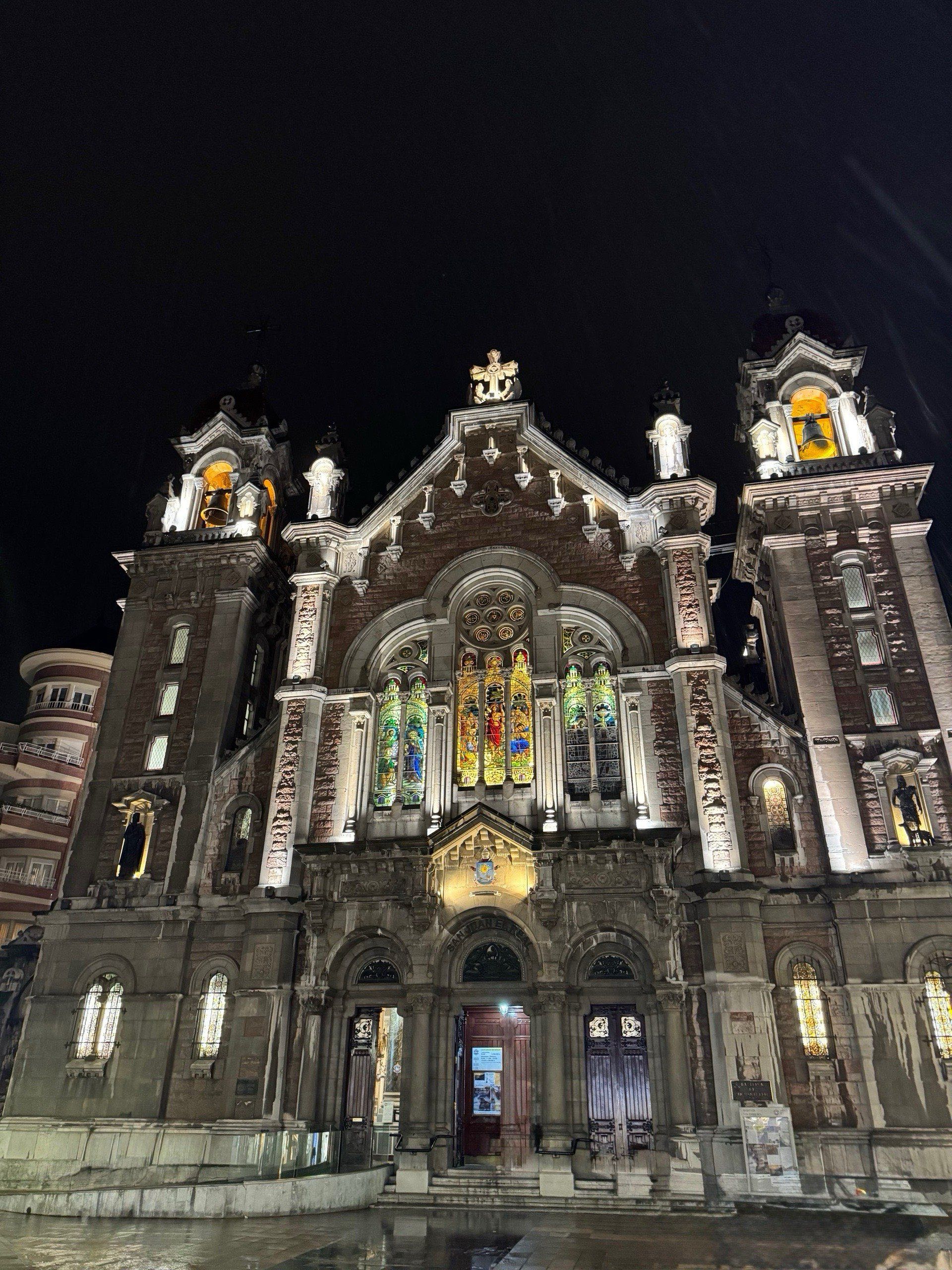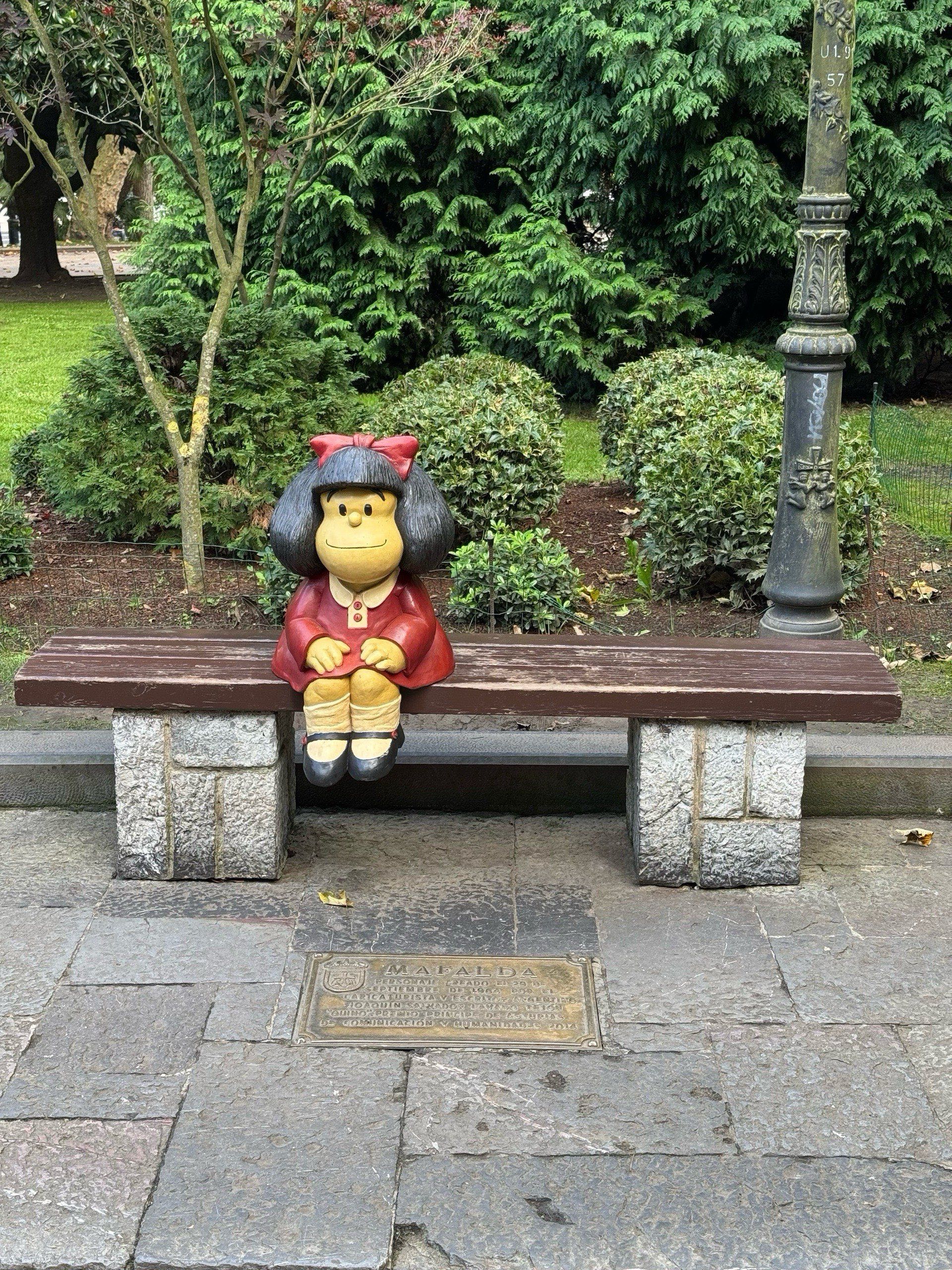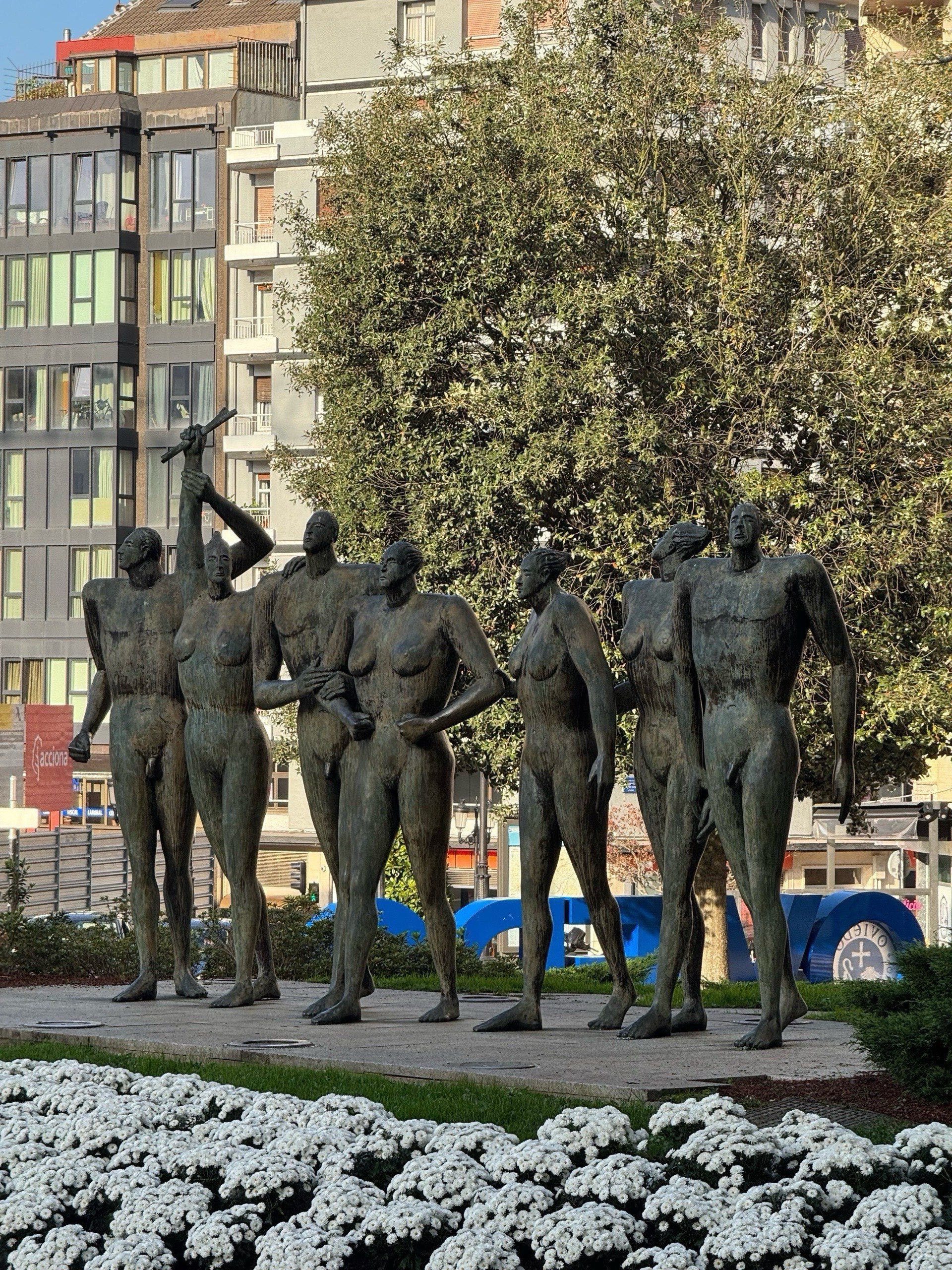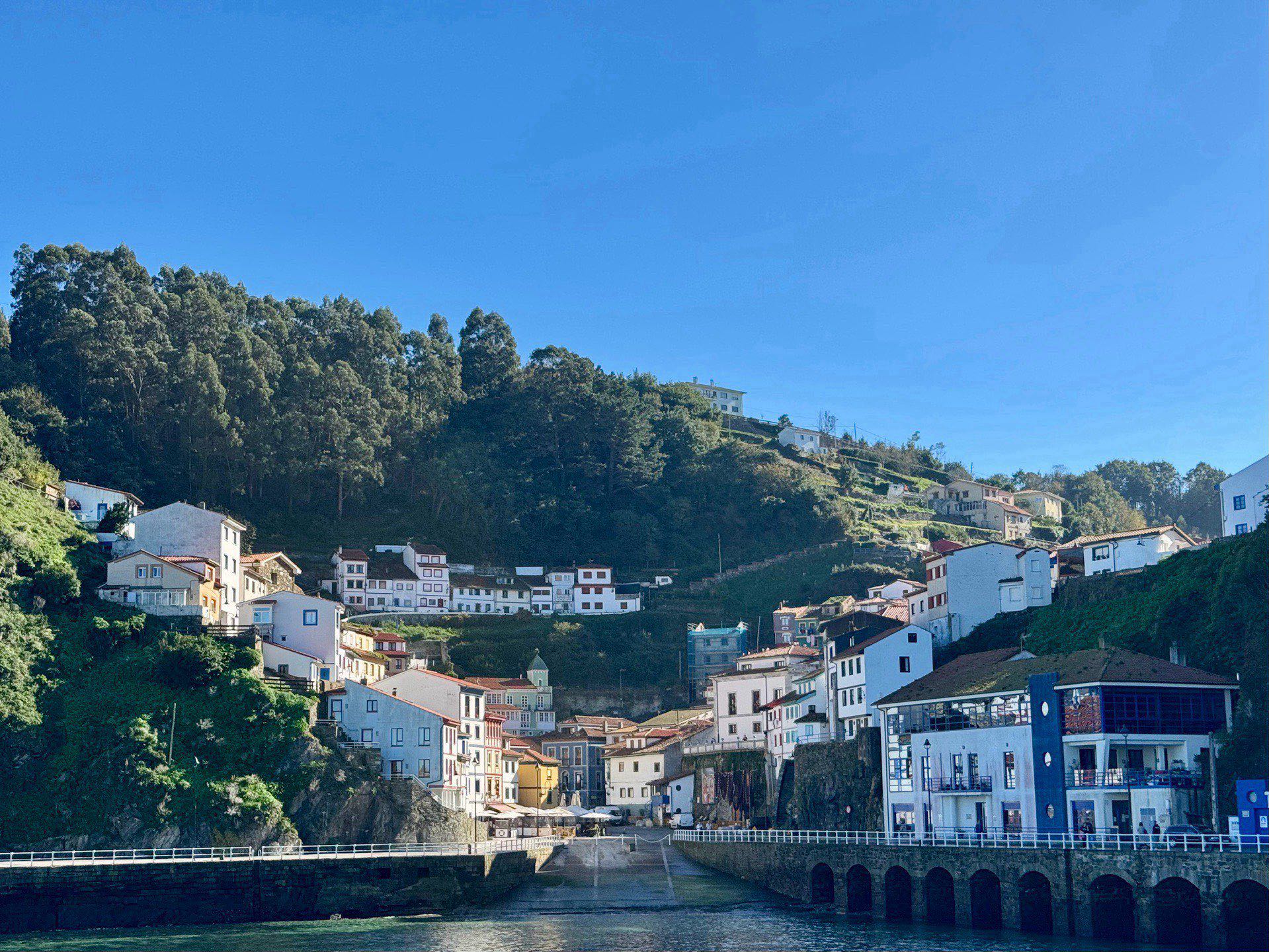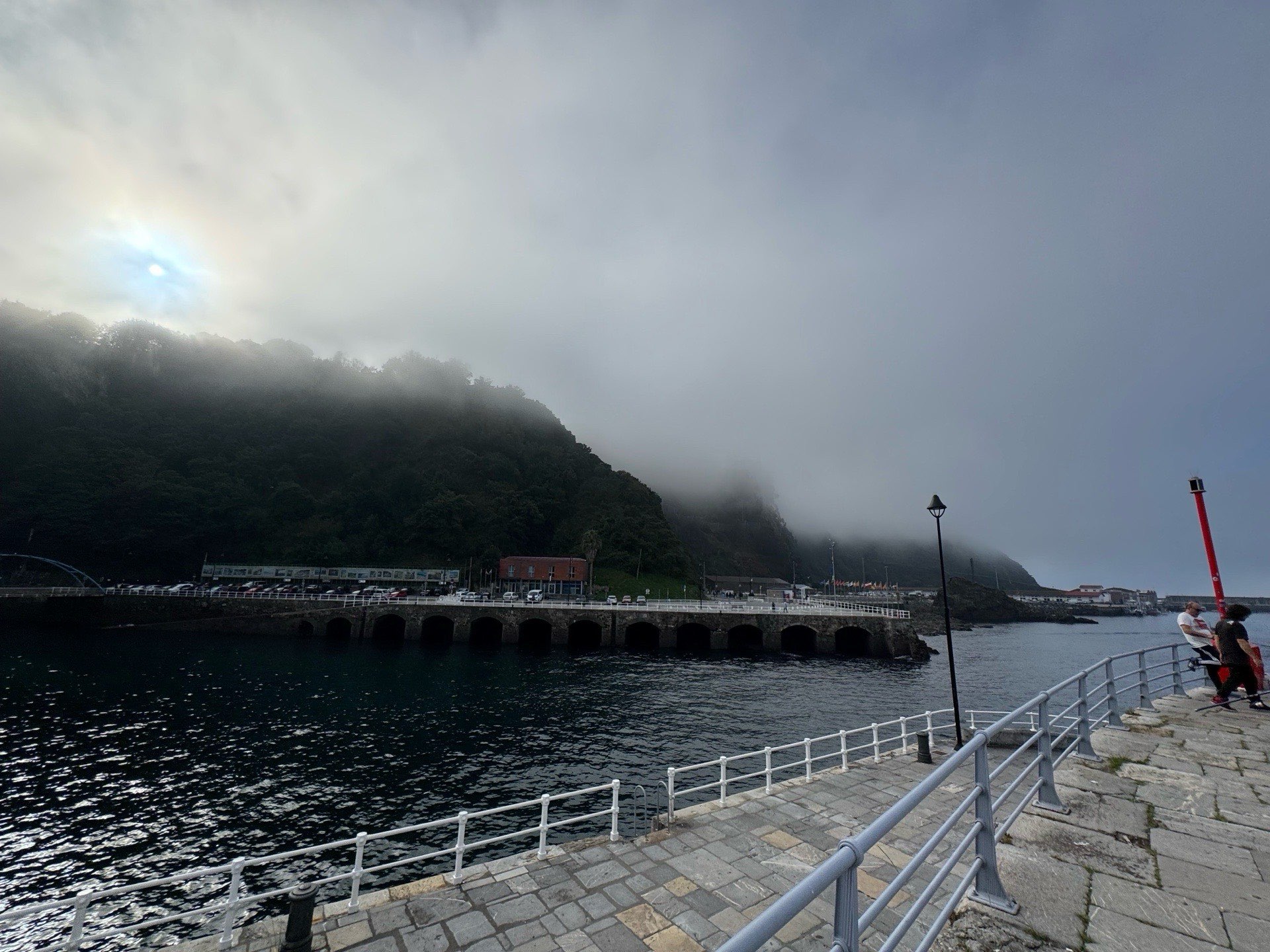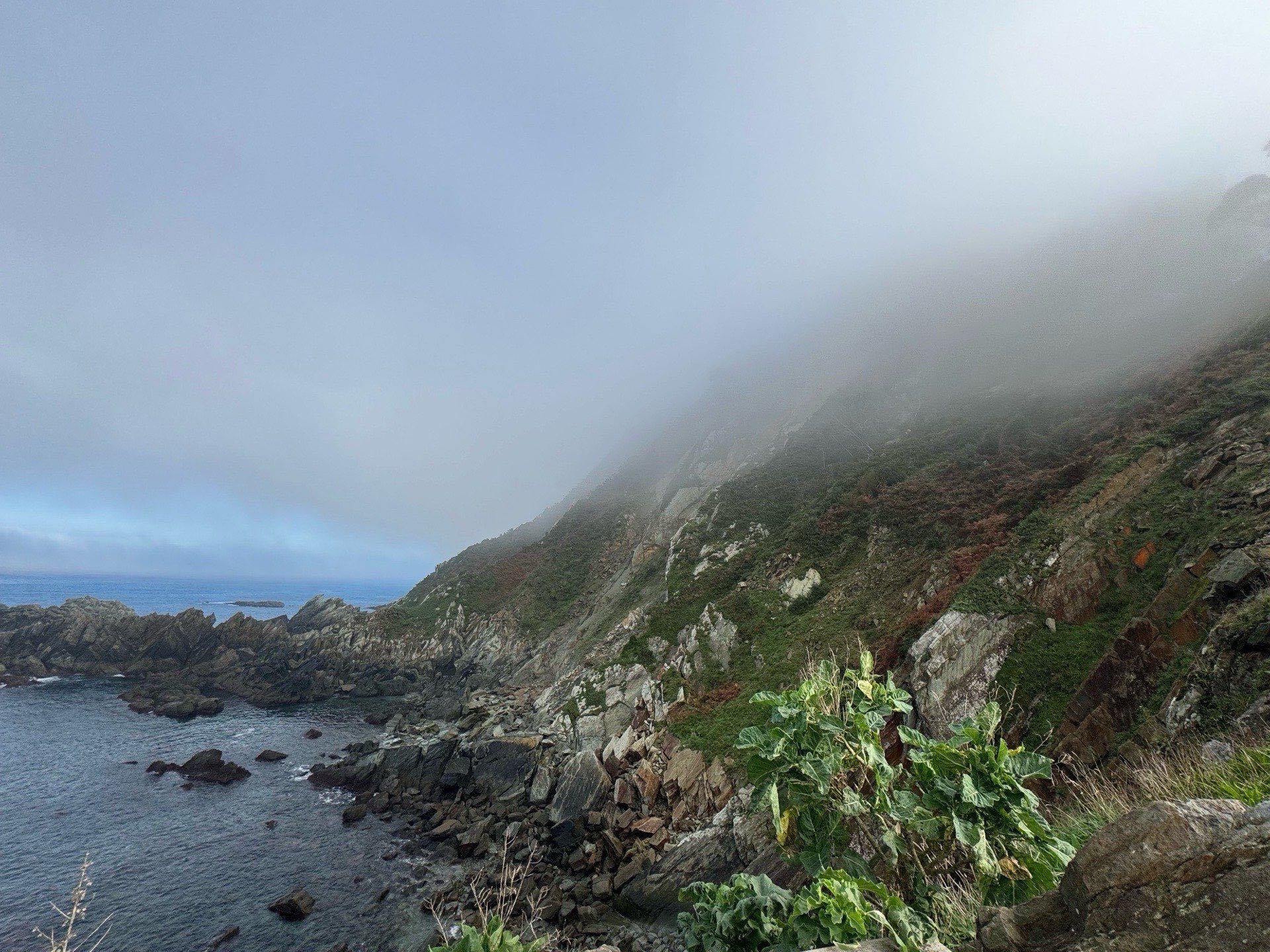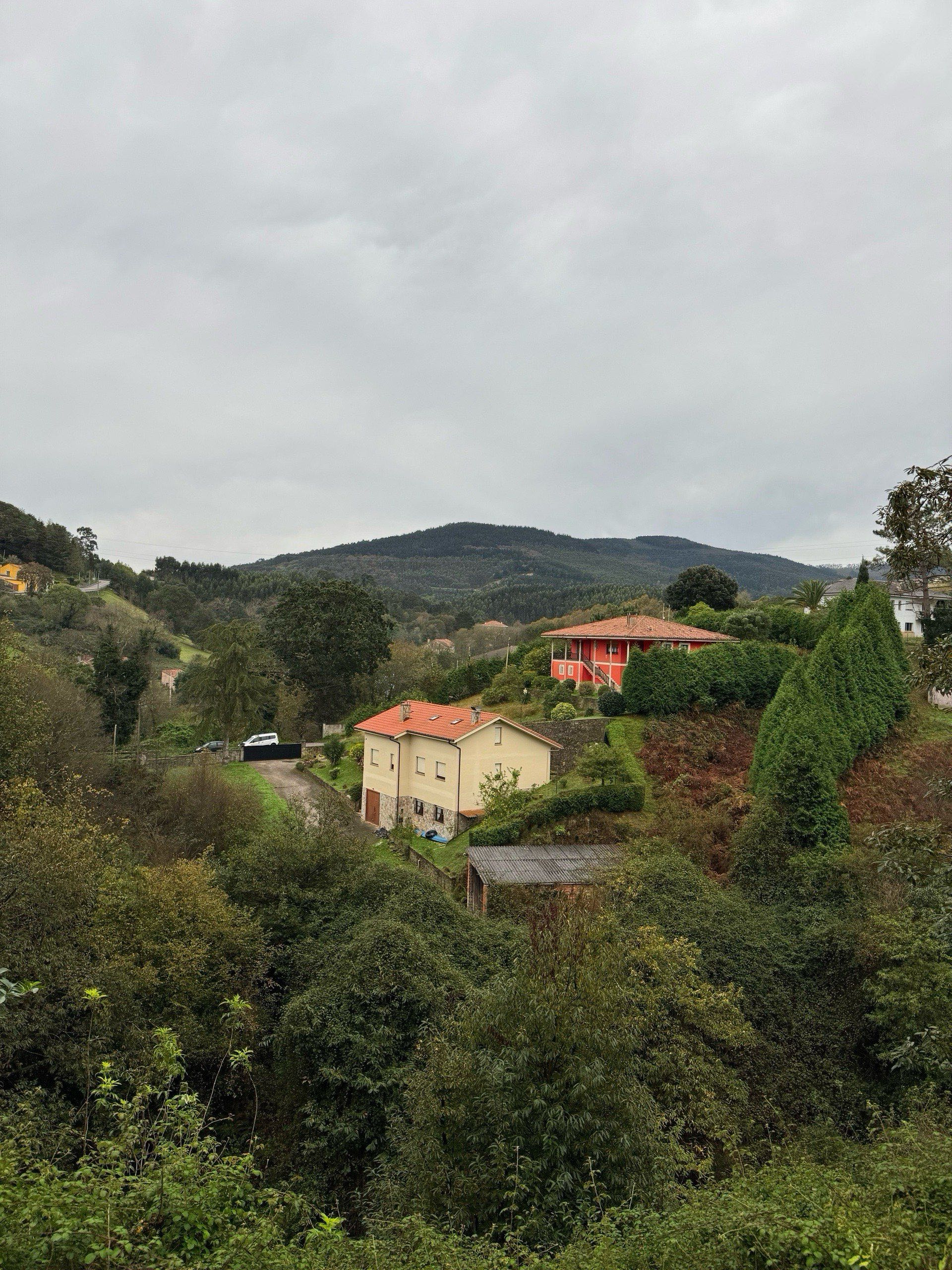Im a bit behind with my travels, so I’ll cover a few stops in this one blog.
After Pontevedra, I participated in some time travel. Unbeknown to me, Portugal and Spain are in different time zones so when you cross the border, you lose an hour, or travel back in time,

(Crossing the border)
My first stop in Portugal was Viana Do Castelo and a mighty fine city it is as they switched on the Christmas lights as we arrived. Actually drove through the crowds for the big switch on. There was a medley of Christmas music that is co ordinated with a brilliant light show and it’s very well done. It plays every hour, on the hour for ten minutes or so until 10pm, except at weekends when it goes on to midnight. What’s slightly less good is when your hotel is yards away from said light show, oh and you’re there at the weekend!! I’ve eventually got the Mariah Carey ear worm out of my head!! It was a seriously good light show though.
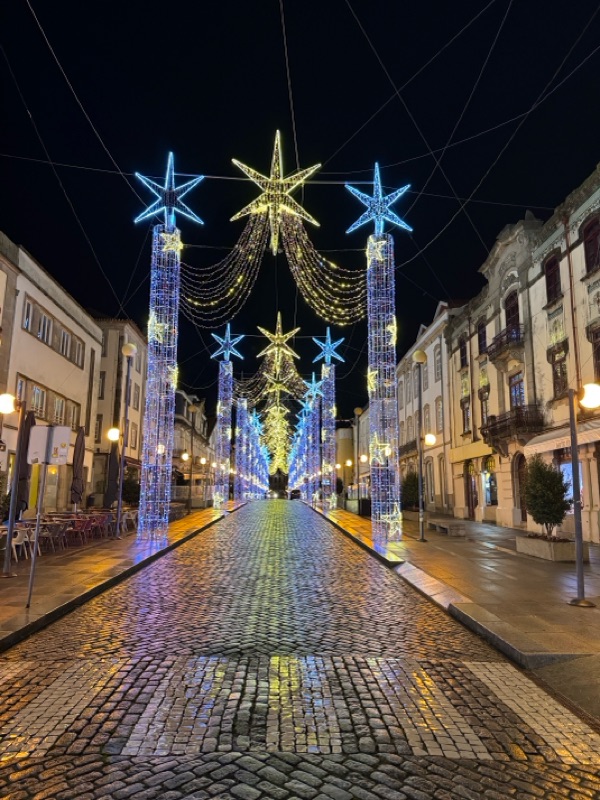
(The lights, but my poor photography doesn’t do them any justice!)
Viana do Castelo also has a funicular railway that goes up to the Sanctuary of the Sacred Heart of Jesus, which is a Catholic Church high above the city. Of course I went on it! The church is worth the climb up both in its architecture and the views the site gives you all around the city and coast line. There was a mass under way while I was there so I only briefly saw the inside, but that was beautiful too. My step count is still important so I walked back down the 200 plus steps and was glad I took the train up!


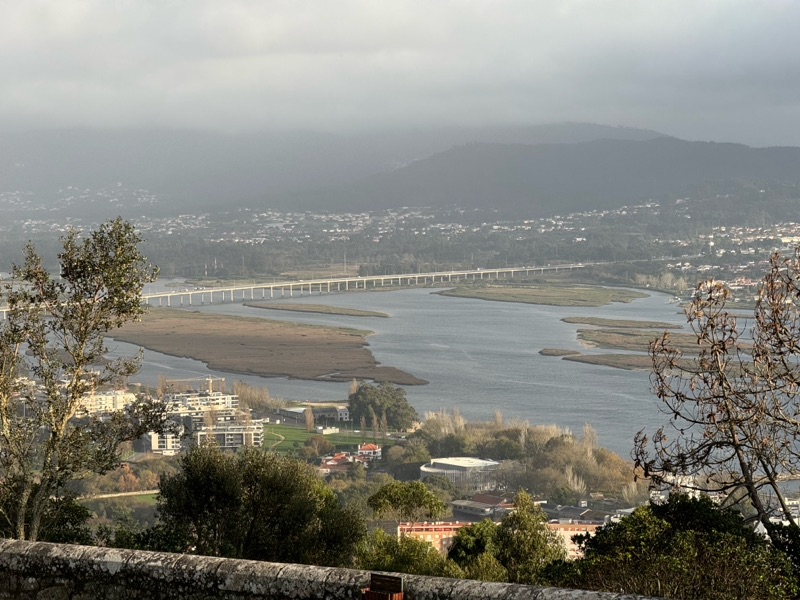
(The church and associated views)
My stay in Viana also included a day trip to Porto, but that will get its own blog.
After Viana I went to Esposende, a surfing resort with a great beach that stretched for miles which included an impossibly long boardwalk that also helped my step count.



(The beach and church)
It also had one of the most effecting churches I’ve come across so far. Why, well it was empty which sounds silly but the silence and beauty of this simple building was what I needed at that time and it moved me.
Next on my trip down the Portuguese coast was Costa Nova, which is a peninsular roughly 21 miles west of the city of Aveiro. Again a long beach with the power of the Atlantic present, but this place had a charm of its own, based around the houses that lined the streets, which were mostly painted in stripes from top to bottom. The history is that originally the fishermen would paint their huts that they used for storing pots, lines and other equipment red and black stripes so they could see them on the shoreline. This developed into painting these huts a specific colour, say red, with white stripes so you knew that was your hut through the mist and fog and your neighbour would be yellow and another blue, etc etc. Over the years these designs have become the norm for all properties so that every one is more or less painted a different colour with white stripes and the whole effect is both charming and beautiful. Obviously I liked the red and white striped ones best!



(Striped houses)
As someone who has lived a largely black, white and grey colour scheme over the last few years, seeing such vivid colours reawakened a part of me that needed rediscovering. No more black hoodies, jeans and trainers.
I’ll end this blog here as it’s getting too long. Stayed tuned for Aveiro and beyond! Oh and Porto!
